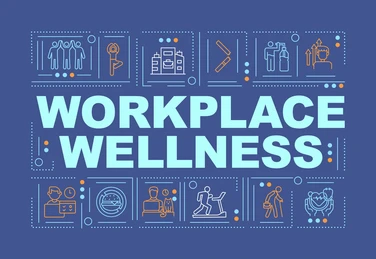As World Health Day on 7th April approaches, businesses should take time to reflect on the ways they support the wellbeing of employees and customers. Globally, mental health illnesses, including anxiety and depression, account for 12 billion lost working days annually. Despite this, 48% of younger generations, including Gen Z and millennials who had taken time off work for those reasons, provided their employers with a different explanation for their absence. Therefore, in order to maintain a healthy and productive workplace companies should prioritise enhancing their workplace culture to address these concerns.
Facilities managers play an important role in cultivating a healthy work environment beyond just mental health. By introducing various initiatives that promote general wellbeing, such as providing ergonomic workstations, encouraging physical activity, offering healthy food options, and ensuring comfortable ventilation and lighting, FMs can contribute significantly to the wellbeing of employees.
Building a Positive Workplace Culture
The proliferation of hybrid working options has the potential to reduce stress, prevent burnout, and provide relief to those with long commutes and busy schedules. However, reduced interaction in the workplace can leave some employees feeling isolated and unheard. To prevent this, it’s crucial to create a positive culture that encourages engagement and builds meaningful connections in the office. This can be actioned through various schemes, such as providing paid-for staff breakfasts or lunch, perhaps weekly or fortnightly, planned social events that can foster bonds and boost productivity in the office.
Providing access to water coolers and various fruit and healthy food choices promotes physical wellbeing, contributing to a more vibrant workforce. Access to bike racks and showers encourages staff to take an active commute in the form of cycling to work, or enables them to go for a jog in their lunch break.
The blurring of work-life boundaries, especially due to working-from-home initiatives, can be mitigated by setting clear expectations around working hours and encouraging breaks, such as small walks for fresh air. This can even become a step-count pedometer challenge to engage in healthy competition with colleagues.
The International WELL Building Institute, the global authority for transforming health and wellbeing in buildings, offers certification for organisations which meet WELL standards across 10 health factors including mental health, community and nourishment. Benefits reported include reduced staff absence and turnover, whilst employee satisfaction increased by 30%, mental health metrics by 10% and productivity by 7%.
Improving the Physical Environment
Providing flexible workspace options, assisted by space management solutions, caters to both collaborative and independent work styles. This allows employees to pre-book workstations before they travel to the workplace, filtered by options such as positioning near their team members, essential resources, or personal preferences, such as proximity to a water cooler or the natural light from a window. Organisations can foster a dynamic and efficient work environment by empowering employees to tailor their workspace to align with their specific needs and preferences.
Offering building users access to CAFM via a self-service portal on an app or public screens allows them to report any issues such as spillages, breakages or equipment breakdown quickly and easily. This leads to faster resolution times, ensures minimal workplace disruption and empowers the employee.
CAFM software with comprehensive preventative maintenance management (PPM) scheduling helps reduce breakdowns and ease the burden on facilities managers. With automated scheduling for each asset, FMs save time and can minimise disruptions by planning maintenance outside peak hours.
CAFM also offers flexibility for the FM team, allowing the help desk to track who is on-site, off-sick or working at a different location to prevent scheduling delays. This holistic approach enhances workplace efficiency and contributes to the overall health and mental wellbeing of facilities managers and operatives.
The Future Workplace
Looking to the future, AI has the potential to evolve and help facilities managers, with algorithms assessing employee feedback, health metrics, and stress levels to pre-emptively address burnout.
However, until such technology is widely available, FM teams can use CAFM software in various ways to help ease their workload and effectively leverage these software solutions to help create a healthier and more productive workplace.
 UK
UK



